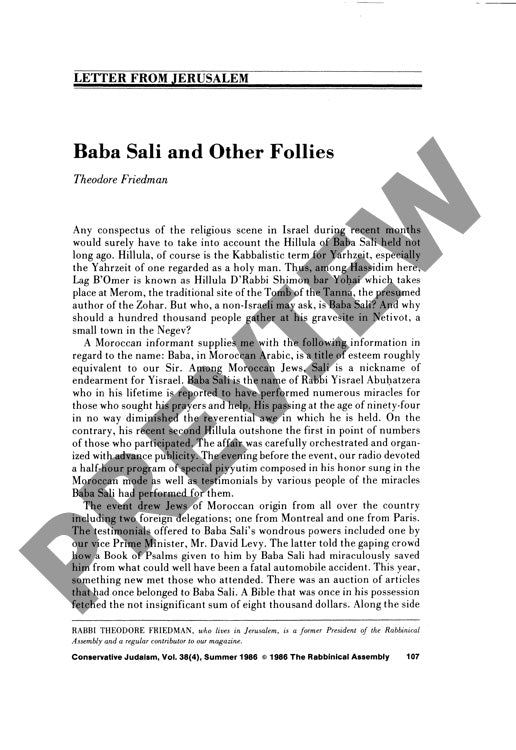Baba Sali and Other Follies Letter From
Couldn't load pickup availability
When religious law becomes a political weapon, ancient texts take on new meanings. Three contentious religious disputes in modern Israel - the Baba Sali pilgrimage, housing policies in Neve Yaakov, and Temple Mount access - reveal striking divergences between historical Jewish law and contemporary rabbinical interpretations. Through comparative analysis of medieval and modern halakhic sources, particularly examining Tosafists, Meiri, and Maimonides on Jewish-Gentile relations, this research uncovers how traditional legal frameworks are being reinterpreted to support ultra-nationalist positions. The Sephardic Chief Rabbi's prohibition against leasing dwellings to non-Jews directly contradicts earlier authorities like Rabbi Isaac Halevy Herzog, while medieval scholars like Meiri explicitly permitted such transactions with contemporary non-idolatrous populations. Similarly, conflicting positions between Ashkenazi and Sephardi chief rabbis regarding Temple Mount access stem from selective interpretations of ritual purity requirements rather than consistent legal precedent. Drawing on observational analysis and historical-legal examination of rabbinic decisions, the findings demonstrate an increasing trend of halakhic pronouncements serving political aims rather than reflecting traditional jurisprudence, raising critical questions about the manipulation of religious authority in territorial-ethnic conflicts.

More Information
-
Physical Description
-
Publication Information
Published
ISBN
-
Publication Credits
Theodore Friedman

